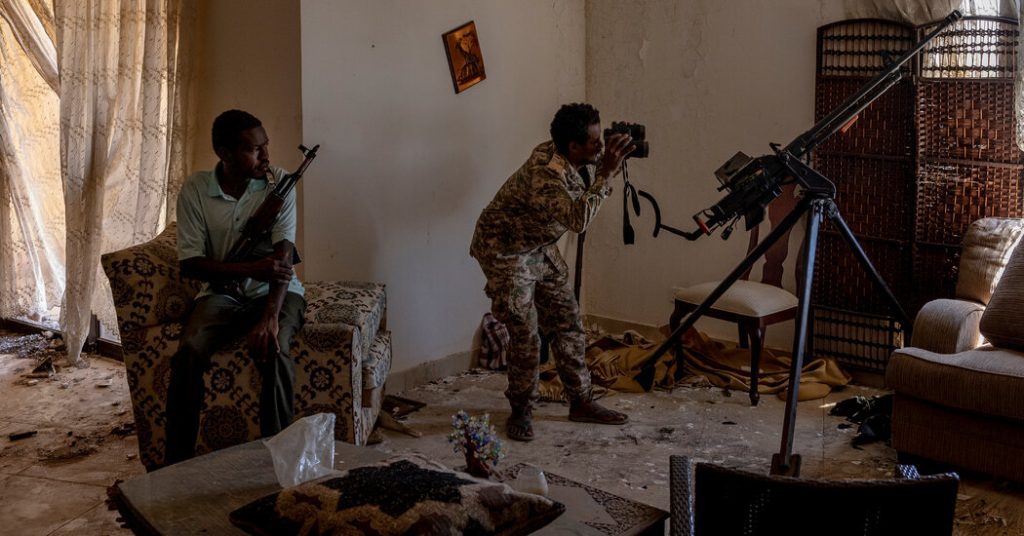Sudanese Military Regains Control of Presidential Palace Amid Ongoing Civil War
In a significant development in Sudan’s prolonged civil war, military forces successfully retook the presidential palace in the embattled capital, Khartoum, early Friday. This event marks a potential turning point as the conflict approaches its third year.
Footage shared on social media showed triumphant soldiers at the entrance of the heavily damaged palace, which overlooks the Nile River. This victory came after intense confrontations with the Rapid Support Forces (R.S.F.), the formidable paramilitary group that the army has been engaged with for some time. An unidentified officer was heard shouting, “We’re inside! We’re in the Republican Palace!” as soldiers celebrated around him.
Sudan’s information minister, Khalid Ali al-Aiser, confirmed the palace’s return to government control, stating on social media, “Today the flag is raised, the palace is back, and the journey continues until victory is complete.” This reclamation is particularly meaningful for the military, which had lost significant parts of Khartoum to the R.S.F. in the early days of the war that began in April 2023. It also provides a significant encouragement to the military’s ongoing efforts to eliminate paramilitary presence in the city.
Prior to the military’s advance, R.S.F. leader, Lt. Gen. Mohamed Hamdan, had expressed his determination to maintain control of the palace. He insisted, “Do not think that we will retreat from the palace,” in a video message from an undisclosed location. However, military forces intensified their assaults, launching a fierce ambush on an R.S.F. convoy as it attempted to withdraw from the area south of the palace, according to video evidence.
The military has made substantial progress since initiating a counteroffensive last September, capturing critical infrastructure like bridges while gradually gaining control over the northern and eastern regions of Khartoum. The initial conflict arose from a power struggle between military leaders Gen. Abdul Fattah al-Burhan and Gen. Hamdan, who had previously collaborated in a military coup in 2021 but became unable to reconcile differences about their respective forces. As the R.S.F. retreated from various districts since January, the war’s toll has become stark, leaving many areas in a state of destruction.
Reports from Khartoum reveal widespread devastation, with neighborhoods left in ruins. Streets are littered with bullet-riddled vehicles, and many buildings have been burned or looted. Desperate remnants of a downtown once bustling with life have devolved into a wasteland, with military snipers posted in abandoned high-rises overlooking the city.
Despite the army’s recent advances, analysts caution that a swift resolution to the conflict remains unlikely. The civil war, which started as a power struggle between two military generals, has escalated, drawing involvement from various foreign powers, which complicates any potential peace efforts. While some areas are seeing signs of recovery, such as Omdurman with its reopening markets, the threat of violence still looms large across the capital.



